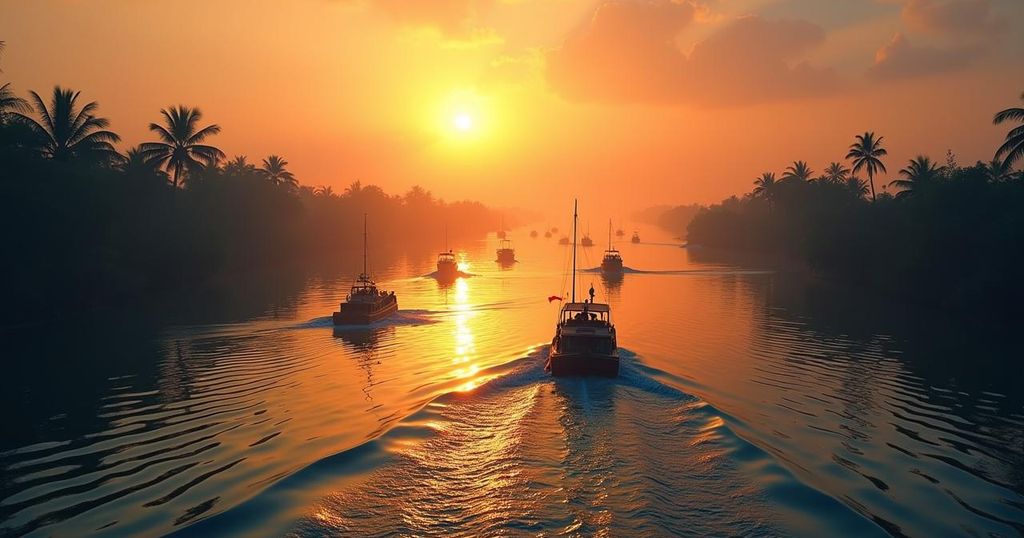In the Democratic Republic of Congo, the ongoing conflict has severely hampered road accessibility, leading many, including Serge Nzonga, to rely on boats despite frequent tragedies. A recent ferry capsized on Lake Kivu, resulting in multiple fatalities, including several family members of Nzonga. Amid calls for accountability and safety improvements, people persist in undertaking this hazardous transportation option, reflecting the dire situation of transport infrastructure in the region.
In the Democratic Republic of Congo, transportation is becoming increasingly perilous due to the overwhelming presence of rebel conflict, which has rendered roads unsafe and often impassable. Consequently, many citizens are left with no choice but to rely on boats for travel, despite the known dangers involved. Last week, a tragic incident occurred when an overcrowded ferry capsized on Lake Kivu, resulting in the devastating loss of at least 78 lives, including eight members of Serge Nzonga’s family. Following this calamity, Nzonga, alongside hundreds of others, returned to the same route aboard another boat lacking adequate safety precautions, highlighting the dire situation. As the investigation into the capsizing continues, families of the victims have expressed their outrage, accusing local authorities of negligence due to the failure to address ongoing security issues in eastern Congo and delay of rescue efforts. Overloaded vessels have become a common cause for concern as individuals desperately seek alternative means to reach their destinations, often opting for wooden boats that struggle to accommodate the weight of passengers and their belongings. Nzonga and other passengers at the Goma port articulated their plight, stating that the railway system does not offer better options and that the roads remain perilous due to civil unrest. “This is the only way we can reach our brothers and sisters in the other province of South Kivu,” Nzonga asserted, lamenting the lack of safer routes. The recent rise in boat accidents is a direct reflection of the deteriorating transport infrastructure and ongoing political instability in the region. Safety regulations are frequently bypassed, and interventions to enhance passenger transport safety remain largely ineffective. The capsizing ferry was trying to dock at the Kituku port when it succumbed to its unmanageable load, according to eyewitnesses, raising questions about regulatory enforcement. Experts have noted that while local authorities promise stricter safety measures, the implementation remains absent, contributing to the reoccurrence of these deadly accidents. As families mourn their loved ones and await information on the missing, many passengers continue to postulate the necessity of undertaking these fatal journeys, gripping tightly to their hope of reaching their intended destinations safely despite the looming dangers of the waterway.
The Democratic Republic of Congo is characterized by severe transport challenges, particularly in eastern regions where rebel activity frequently complicates road travel. Many residents, including traders and families, resort to using boats as a vital means of transportation, despite the ongoing risks associated with overcrowded vessels and a lack of safety protocols. The precarious conditions of both land and waterways prevent secure and reliable travel options, forcing communities to rely on deteriorating infrastructures—a situation that only exacerbates the already critical humanitarian conditions in the region.
In conclusion, the reliance on boats in the Democratic Republic of Congo has become a grim necessity for individuals facing obstructed roads and the threat of rebel incursions. The tragic loss of life due to capsized vessels underscores the dire need for improved regulatory oversight and urgent measures to enhance transport safety. As communities continue to endure these hazards amid ongoing socio-political strife, the pressing question remains: how long will citizens have to risk their lives for the sake of reaching their families and communities?
Original Source: apnews.com






